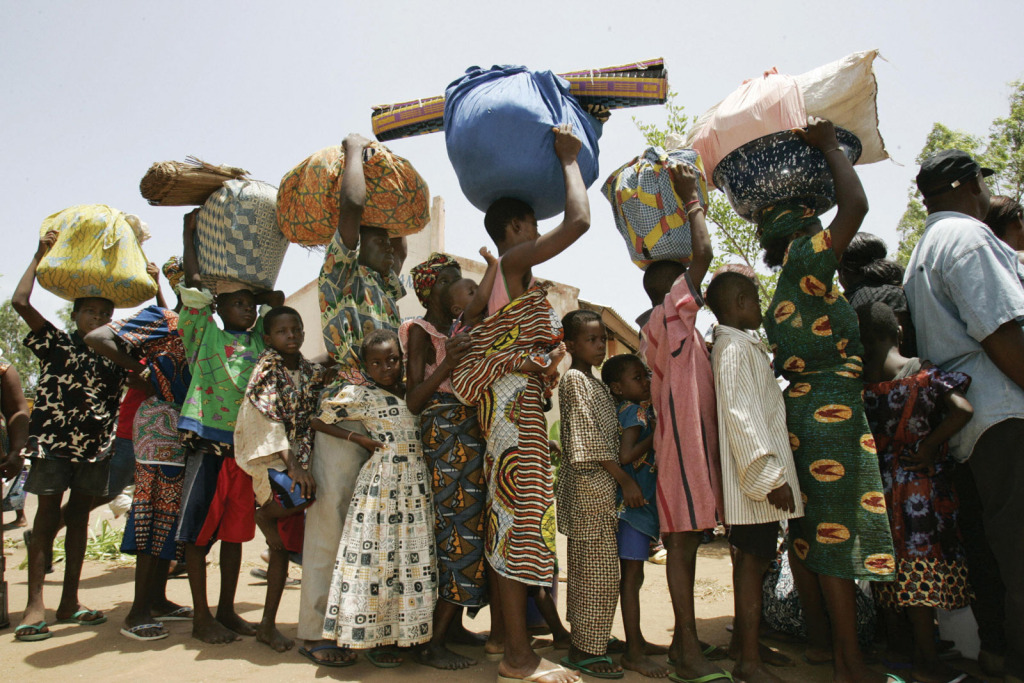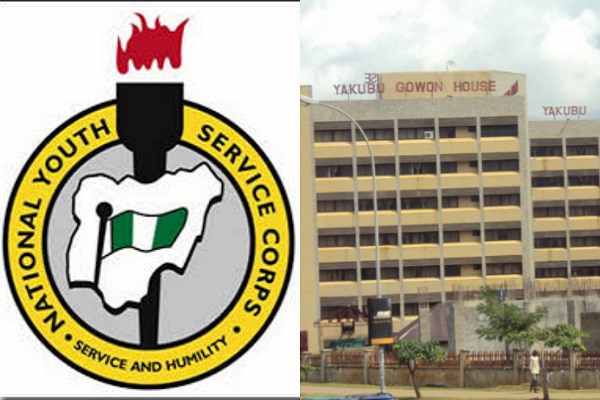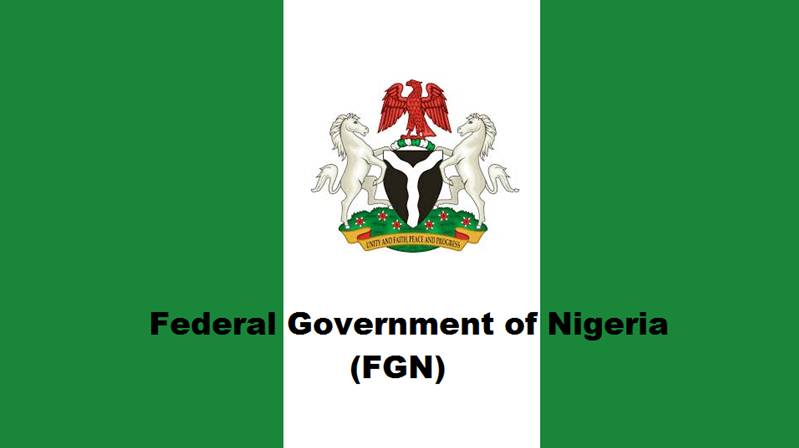General
Nigeria Has 3.2 Million Internally Displaced Persons, Hosts 84,000 Refugees

The United Nations High Commission for Refugees (UNHCR) has disclosed that Nigeria currently has 3.2 million Internally displaced persons and 84,000 refugees.
The UN Refugee Agency, in it’s global trends report, released on 16th June 2022 showed that 89.3 million people were forcibly displaced at the end of 2021 worldwide, with 27.1 million being refugees, 53.2 million IDPs, and 4.6 million asylum seekers.
It noted that most of the refugees in Nigeria come predominantly from South West and North West regions of Cameroon affected by the conflict between the government and activists calling for separation of Anglophone regions.
The UNHCR, in a statement on Monday marking the World Refugee Day by it’s Representative in Nigeria, Ms. Chansa Kapaya, said the 77,000 Cameroonians are hosted mainly in four states.
She noted that: “in Cross River, Taraba, Benue and Akwa Ibom they began arriving as of 2017 to date. Nigeria also hosts an additional 6,900 refugees and asylum seekers from other countries, but predominately from Syria, Niger, DRC, Turkey CAR, Lebanon mainly settled in urban cities in Nigeria, like Lagos, Abuja, Kano, Ogun.”
She said: “Nigeria is party to the 1951 United Nations Convention relating to the status of refugees and its 1967 protocol as well as the 1969 OAU Convention and other regional instruments which mandate signatories to provide protection to a person who seeks refuge(asylum) owing to a well-founded fear for his life and to seek durable solutions to their problems. Nigeria has fulfilled her international obligations and has also reaffirmed her commitment and exceptional solidarity with refugees by her commitment to the Global Compact on Refugees (GCR) principles of refugee inclusion and responsibility sharing.”
Kapaya said with this year’s World Refugee Day theme: “The Right to seek Safety” as individuals, we all share the responsibility to protect people seeking safety. whoever they are, wherever they come from, and whenever they are forced to flee.”
She added: “But reaching safety is only just the beginning, people fleeing war or other forms of violence or abuse need opportunities to heal, learn, work, and thrive. This is in line with the refugee convention and the Global Compact on Refugees. They also need solutions, such as an opportunity to return home when the situation permits in safety and dignity, or to integrate locally wherever they have found safety and have rebuilt their lives, or for the most vulnerable cases opportunities to be resettled to a third country. We can all make a difference, in the lives of refugees, we can play a part, no one is a refugee by choice, but we have the choice whether to help or not, whoever, wherever, whenever. Everyone has the right to seek safety. Seeking asylum is human right and protecting refugees is a collective global responsibility!”
In his message on the day, the High Commissioner for Refugees, Filippo Grandi asked world leaders to shun war and embrace peaceful resolution of crisis.
He said: “Yet this year we are again reminded of the work we have ahead of us as world leaders remain unable or unwilling to resolve conflicts. We at UNHCR recently announced the seemingly unimaginable: 100 million people have now been forced to flee their homes. The war in Ukraine, as well as new or continuing emergencies in places such as Ethiopia, Burkina Faso, Myanmar, Nigeria, Afghanistan, and the Democratic Republic of the Congo, have all contributed to this staggering figure.”
He lamented that: “The solutions deficit continues to grow as more people are forced to flee than are able to return home, resettle to a third country, or integrate fully into the country where they have sought safety. In other words, forced displacement is outpacing solutions for those on the run. But it doesn’t have to be that way.”
He said: “Leaders can work together to make peace and resolve the plight of the displaced with lasting and humane solutions.”
General
Customs generated N275.8m in Ogun in 2024 – Comptroller

Nigeria Customs Service (NCS), Ogun 1 Area Command, says it generated a total revenue of N275.8 million within the state in 2024.
The Comptroller of the command, Mr Mohammed Shuaibu, disclosed this during a news conference on Tuesday in Idiroko, Ogun.
Shuaibu said that the ‘huge revenue generation’ was made possible through the diligent efforts of the command’s officers and cooperation of traders.
He also said that the command was able to achieve the milestone through intelligence-driven operations and dedication of the officers.
“The revenue was actualised through the collection from baggage assessment, proceeds from auction sales of premium motor spirit (PMS) and vehicles,” he said.
Shuaibu listed the items seized to include: 16,712 bags of foreign parboiled rice, 139,881 litres of PMS, 940 rounds of live ammunition, 71 sacks of Cannabis Sativa and 3,253 parcels of same substance.
Others were: 586 bales of used clothes, 86 vehicles used for conveyance, 18 foreign used vehicles, 2,150 pieces of used pneumatic tyres, 760 pieces of donkey skins, 3,766 cartons of frozen poultry products and 85 bags of imported flour.
“These achievements are a testament to our efforts at combating smuggling activities, protecting the economy and safeguarding the well-being of the society,” he said.
Shuaibu commended the Comptroller-General of Customs, Mr Adewale Adeniyi, for his continuous support and for creating an enabling environment for the command to thrive.
He also lauded the officers and men of the command for their resilience, professionalism and dedication to duty, saying that these were instrumental to achieving the milestones.
General
NYSC seeks Osun transport system’s support for safety movement of corps members

The National Youth Service Corps (NYSC) has solicited for the support of Osun State Transport Management System (OSTMS) to enable corps members deployed to the state to locate the orientation camp with ease.
Mrs Funmi Okundaye, NYSC’s Assistant Director, Information and Public Relations Unit in Osun, stated this in an interview with the News Agency of Nigeria (NAN) on Monday in Osogbo.
NAN reports that the 2024 Batch C, Stream II corps members deployed to the state will commence their three-week orientation between on Jan. 22.
According to her, the transportation management system plays key roles in the movement of corps members to the camp and their various places of deployment across the state after the compulsory three-week orientation.
“The OSTMS roles cannot be over-emphasised, looking at the assistance being rendered to some corps members who have never been to the state before,’’ she said.
Okundaye called for more assistance from the organisation to enable corps members locate the orientation camp with ease.
According to her, the swearing-in of the new corps members will hold on Jan. 24 at the state orientation camp ground, with notable stakeholders expected to be in attendance.
She called for the support of all stakeholders in making the exercise a successful one.
Okundaye assured that NYSC would not relent in achieving its set goals and objectives, especially for the corps members deployed in the state.
Education
FG harps on skills acquisition, education for women in detention

The Federal Government, on Tuesday, emphasised the critical role of skills acquisition and education in the rehabilitation of women in detention.
Minister of State for Education, Dr Suwaiba Ahmad, stated this at “the Women in Detention Workshop”, organised by Prison Rehabilitation and Welfare Action (PRAWA), in Abuja.
The News Agency of Nigeria (NAN) reports that the event was organised to mark PRAWA’s 30th anniversary.
Ahmad, who stressed the need for addressing the needs and rehabilitation of women in detention, said that such women must be equipped with adequate skills for self-reliance.
“This gathering reflects our shared resolve to ensure that even within the four walls of correctional facilities, women are afforded the dignity, support and opportunities necessary to rebuild their lives.
“Education, both formal and informal, is central to the transformative power of rehabilitation. It is not merely a tool for personal development but a lifeline that can open doors for reintegration and independence.
“For women in detention, education is a pathway to self-discovery, self-reliance and the restoration of hope. Beyond education, skills acquisition is a critical component of rehabilitation.
“Many women in detention face economic hardship and social exclusion which often perpetuate cycles of criminality,” she said.
Ahmad said that by equipping them with skills relevant to their communities and marketable in today’s economy, such women would be empowered to return to society as productive and self-reliant individuals.
Ahmad further said: “Rehabilitation and reintegration are not acts of charity; they are investments in humanity.
“By prioritising the education, skill acquisition and special needs of women in detention, we create a society that values second chance and upholds the dignity of every individual,’’ the minister said.
Earlier, the Executive Director of PRAWA, Dr Uju Agomoh, said the organisation, a CSO, was established in 1994 to promote security, justice and development in Africa.
She also said that the event was designed to tackle the broader issues of prison conditions as well as human rights violations and rehabilitation.
“One key initiative is training health workers and legal professionals on how to document and address torture cases, focusing on the internationally-recognised `Istanbul Protocol’.
“In addition, PRAWA is working closely with Nigerian universities, including University of Lagos, University of Abuja and several others.
“This is to introduce paralegal training programmes that will empower students to assist in legal and human rights efforts within the criminal justice system,” Agomoh said.
-

 Headlines4 years ago
Headlines4 years agoFacebook, Instagram Temporarily Allow Posts on Ukraine War Calling for Violence Against Invading Russians or Putin’s Death
-

 Headlines4 years ago
Headlines4 years agoNigeria, Other West African Countries Facing Worst Food Crisis in 10 Years, Aid Groups Say
-

 Foreign3 years ago
Foreign3 years agoNew York Consulate installs machines for 10-year passport
-

 News1 year ago
News1 year agoZero Trust Architecture in a Remote World: Securing the New Normal
-

 Entertainment3 years ago
Entertainment3 years agoPhyna emerges winner of Big Brother Naija Season 7
-

 Headlines1 year ago
Headlines1 year agoNigeria Customs modernisation project to check extortion of traders
-

 Entertainment2 years ago
Entertainment2 years agoMovie download platform, Netnaija, announces closure
-

 Economy2 years ago
Economy2 years agoWe generated N30.2 bn revenue in three months – Kano NCS Comptroller













